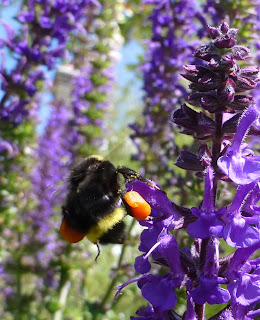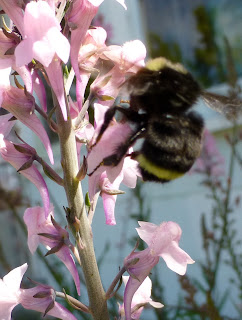Congressman Butlek entered the windowless room and locked the door behind him. “Good news, boys–it looks like the immigration issue is going to go away before we have to admit we like the cheap labor.”
“That’s excellent! What happened?”
“No crops to pick. So that is potentially a downside. I’ve brought in Dr. Doomer of the EPA to bring us up to speed.”
“I thought we finally got rid of all the scientists down there.”
“We did. He’s a volunteer.”
Dr. Doomer looked up with an expression of such earnestness that the congressmen turned away in revulsion.
“All right,” Congressman Askis began. “Where we at? Is it the drought thing again? C’mon, boys. We can handle this. We just need to move our operations up north, where our old weather has gone. Start some acquisition work in Canada. They don’t even know what they have up there. They’re just using it to stack moose in. We can get it cheap. And we’ve still got plenty of water. You been in a 7-11 lately?”
Dr. Doomer cleared his throat. “Well, it’s not so easy as just moving things up north. It’s not just the temperature and the water table. For starters, we’d have to move the topsoil too.”
“Shit, son, our topsoil is moving right now. It’s so dry in my district the wind is picking it up and taking it away. All we have to do is get it going in the right direction,” Butlek said, waving his arms.
“You mean, change the prevailing wind patterns? We don’t have that kind of control.”
“Oh, is that how it is with you people? First you tell us we are changing the weather, and then you say we can’t change the weather. You can’t have it both ways.”
“At any rate, it isn’t just the temperature, or the water, or the topsoil. We’re losing our pollinators too. Our bees are suffering massive die-off from colony collapse disorder. Potentially they’re taking our entire food production capability with them. The worker bees all drop dead away from the hive, leaving the females and queen without income.”
“Union bees, without a doubt. Lazy fucks.”
“They’re not lazy, necessarily. In fact beekeepers have been moving them from crop to crop and many suspect they’re being overworked. Pesticide use is also being implicated.”
“Good riddance. I hate bees. I got stung on the golf course the other day, right on the second hole,” Askis grumped, shifting in his seat.
“That was probably a wasp.”
“Same thing.”
“No, really different. We’re talking about the European honey bee.”
“French union bees! I knew it! We can solve this. We’re Americans. Do we even need pollinators in this day and age? All we need is new crops with more self-motivation. Get Monsanto on the line!”
“I’m afraid it’s not feasible. And each single flower needs to be pollinated to ensure a good crop.”
Askis drummed his fingers on his desk. “Mexicans,” he said. “We’ll get the Mexicans back. An army of Mexicans with Q-Tips. We don’t even have to offer them a path to citizenship–just a provisional driver’s license and a lottery chance for a low-rider. They’ll be swarming up here.”
“That brings us back to that immigration problem, though. We can’t get reelected by bringing in new Mexicans,” Butlek pointed out.
“Well, the colored, then. Colored folks with Q-Tips. Nothing sharp,” he added.
“They won’t do it.”
“White folks! Really poor white folks. We’re crawling with them.”
“White people can’t do it. We’re not cut out for that kind of work. Something about the hips,” Butlek said, standing up and demonstrating an artless waggle.
“Okay–wait. We could make some little pollinating device. Something small and nimble enough to go from flower to flower, but not need paid vacation or health insurance.”
Fingers drummed.
“Drones!” Butlek and Askis shouted at once. “Get the Air Force on the line.”
“With all due respect,” Dr. Doomer put in, “that’s exactly what bees do. Nobody does it better. If we merely strove to remove the obstacles to the bees’ success, we could…”
“Point taken,” Askis said. “Let’s get us some bees, then. New bees, with a better attitude. Not so damned entitled. Get China on the line!”


What a shame that the bees didn't sting Askis on every hole. Repeatedly.
Could cause swelling…
Jeeze, Murr…I must stop reading this when I have coffee…
You're better off reading this half asleep, for sure.
It also came up at their meeting that pollinating drones would create jobs. And – they could let Mexican workers in to do the job providing they agree to sign up and vote Republican.
Sorry:
I am trying to stay focused; but I still can't get the picture of bananas up the ass to treat hemorrhoids out of my mind.
the Ol'Buzzard
See? Public service. Next time you buy bananas, you'll remember just which end to put them in.
The worker bees are female. There goes your theory. The males are drones. Who are on the take from the government.
Same ol' international attack on the females of the species; they have been "asking for it" (i.e., to be killed off).
Now you know why moving to Canada is just not on. We're savvy to your tricks and jullfoolery. Expect to be met at the border by a massive throng of "not amused" Moose.
Consider yourself warned.
But blessings and Bear hugs to you anyhow!
Bears Noting, Life in the Urban Forest (poetry).
You know, I was going to check that, and then I forgot to. I do like to keep my facts straight. It might not always appear that way, but I do.
Some day the Sesame Streeters will have to abandon their mantra, "I am the most important person in the world," and figure it out for mankind. I won't be here when it happens.
Sesame Street promotes cooperation. It was ABCs idea to tell kids, "the most important person in the whole wide world is you, and you hardly even know you!" Kids cartoons were funny back in the day. Once they turned into 22 minute toy commercials, the government decided they needed to be balanced with education. Schoolhouse Rock, yes…self-esteem messages, not so much.
My parents instilled self-esteem the old-fashioned way, which was more "I love you no matter WHAT" than "I love you just the way you are."
Damn, I'd laugh if this wasn't so damned accurate. So long as corporations run the world; There. Is. No. Hope.
Ditto . . .
Ditto…
it used to be against the law to listen in on conversations 😉
And Indigo's right. It's too true to be funny, except that if we don't laugh we may have to kill ourselves in despair. No, wait – we're all going to die anyhow, just sooner and more painfully than we hoped.
It's such a dang shame we have to take everything else with us when we go.
Painfully brilliant satire……no, too true to be satire. Sob.
Are you sure they weren't called Butkis and Aslik? Or did you discard that idea right away?
As for the banana idea…Yuk. Hmmm, Murr, I am beginning to think that perhaps you should get your head out of your….you know.
Love, Lo
Oh, never fear! I am not that flexible!
Second last sentence … the irony, it drippith!!!
Excellent, as always.
Entitlement doesn't apply to the moneyed elite. They EARNED it.
about it
Pithy!
Perfect. Now I just wish somebody would drop some african bees on those dudes.
Man, didn't they take some people out in Texas recently? I'll have to look that up.
Yep, a man on his tractor clearing an old building. The estimate was 2,000 to 4,000 stings. Horrible-
I expect Pat Lichen will give you the lowdown on bees. Females do all the work…of course!
And somewhere way back in the dark gooey recesses of my brain I knew that.
this was brilliant, i imagine this is what happens in every government office around the world…they really don't have a clue. my mum's friend she keeps bees, and they all died last year…she had to get new ones…probably chinese 🙁
It's bad enough losing a pet. A whole swarm?
Another genius piece, my friend. You have a natural talent for taking serious subjects and wrapping them in humor so they can be spoon-fed in such a way that morons can even understand. Now if we could just get the morons to give a shit. Which reminds me. I'm not reading your post on piles. 😉
Oh sure. I'll just bet you already did.
There a a point that is beyond humor and you just went there. It's so true. Love the names…. also true. Ha
I believe I've put Congressman Butlek in my latest novel. I wonder if anyone will ever get to read it. Know any literary agents?
The sad thing is, I don't doubt that the conversation is that far from what really happens.
Is it worse if they know what's up and do the wrong thing anyway? I guess it doesn't matter.
I'm purty darn fearful rat now:(
We'll miss the worst of it.
"Oh we'll all go together when we go – every Hotentot and every Eskimo. There will be no more tedium when we see that ICBM -" Icy BM? I think I'm commenting on the wrong post.
So, buy your honey locally. Go to the farmer's market. Drive out in the country. Search on the internet. If it becomes sufficiently profitable, big business will get involved in the care and well-being of bees. Look at what they've done for poultry and cattle.
The first Danish joke I ever understood was about the farmer who was selling honey for 3 Kroner a liter when everyone else was selling at 8 Kroner a liter. When finally persuaded to share his secret he whispered, "I have only one bee."
This was brilliant… great way to point out this truly devastating problem.
Vita Slim Keto Reduced urge for food and Cravings Adopting a ketogenic weight-reduction plan lets you lessen both your urge for food and cravings for calorie wealthy foods. As you begin eating healthy, gratifying, and useful excessive-fat ingredients, your hunger emotions will naturally begin decreasing. Lots of factors manifest when you are workout. A number of these are top for your fitness and others aren't so right – like when you exercise excessively.
http://buy12pills.com/
Another great marker of a quality brand is to what extent the organization has been doing business. In the present society, there are huge amounts of ecological components that impact mens wellbeing.
male extra